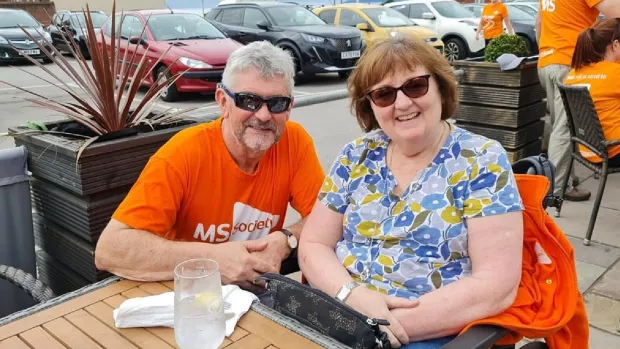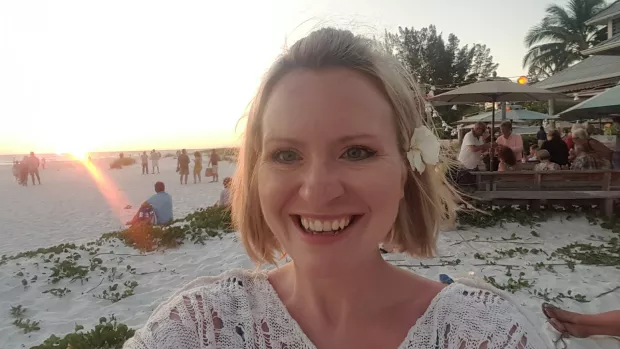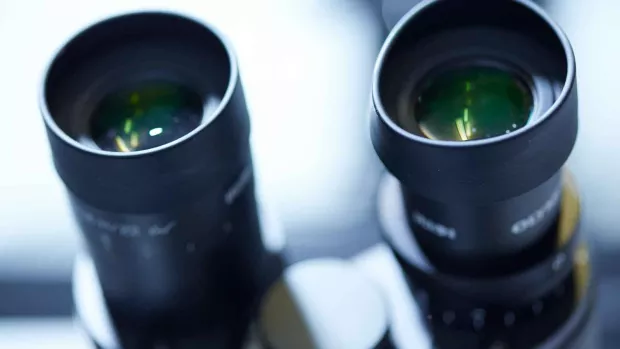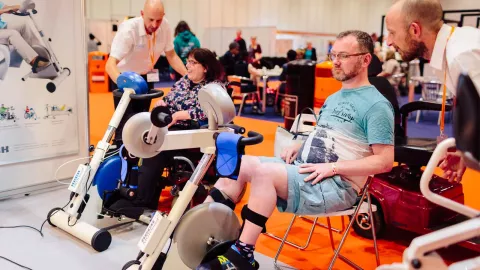
What's it like taking part in MS research?
There are so many different types of research to take part in. From trialling a promising drug, taking a survey, to testing out a new exercise package. We asked a few people with MS what motivated them to take part in some of our research studies and what their experience was like.
Alison, MS-STAT2
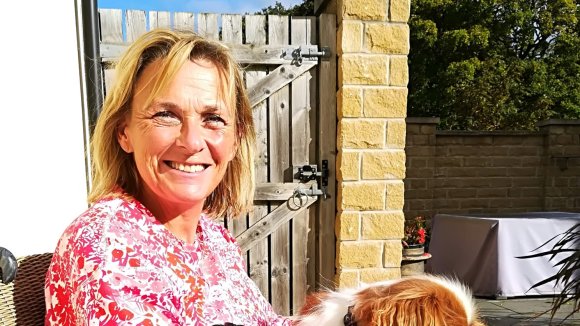
"I’m doing this not only for myself, but for my 24-year-old niece. I believe that before she gets this far down her journey with MS a cure will be found.”
MS-STAT2 is a clinical trial for secondary progressive MS. It’s testing whether a drug called simvastatin can protect nerves from damage.
“I leapt at the chance to join the MS-STAT2 trial. I’ve lived with MS for over 30 years and until then there’d only been ‘hope’ there would ever be a treatment that could help me.
Last year I went for what I thought was my final appointment with the trial team. After some rigorous testing, the findings were put into the computer. I cried when I was told I could remain on the trial for another 18 months as I hadn’t progressed at all in those three years!
I would encourage anyone to grab any opportunity with both hands to try to slow, stop, prevent or, ultimately, cure this disease. I’m doing this not only for myself, but for my 24-year-old niece. I believe that before she gets this far down her journey with MS a cure will be found.”
MS-STAT2 has recently completed recruitment. But there are other trials into progressive MS that are recruiting, like ChariotMS. And soon, Octopus.
Jesse, ADAMS study
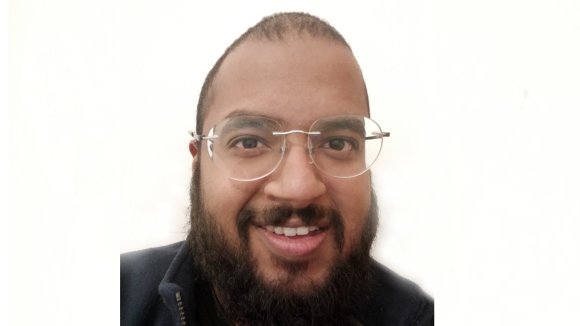
I want the world to look back on this project in 10, 20, 30 years’ time and appreciate how much of a monumental shift in focus it was.
The ADAMS study is looking at genes in people from African, Asian and other non-European ancestral backgrounds. The team want to see how they could contribute to the risk of MS.
“I was diagnosed with relapsing MS when I was 18. I’m 26 now. A lot of my search in those eight years was trying to find a place where I belonged. I was a young Asian boy with MS, so I was different to most other people diagnosed.
But it’s well-known now that MS doesn’t just affect people of European descent. So I’m pleased this project is looking at MS genes in people from different backgrounds. I hope this study will shine more light on understanding MS for everyone – that’s why I’m taking part.
The research team posted me a kit to collect my saliva for DNA testing. So it’s easy to take part from home. I want the world to look back on this project in 10, 20, 30 years’ time and appreciate how much of a monumental shift in focus it was. If we all participate this could be key to understanding MS.”
Find out more about the ADAMS study sign up on the trial site.
Ann, LEAP-MS
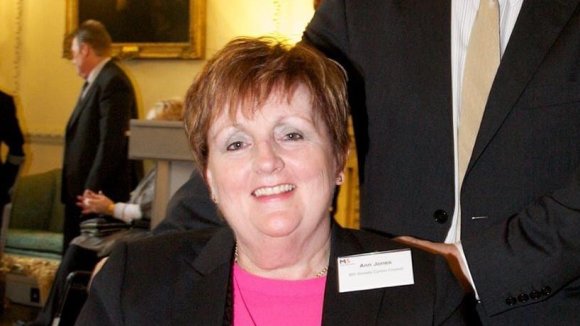
At first I found it difficult. But over time I found myself getting stronger. I’ve really benefitted from taking part and met lots of lovely people along the way.
The LEAP-MS study is developing an exercise package for people with progressive MS. It combines online classes with coaching from a physiotherapist to help keep active.
“My secondary progressive MS means I have trouble with walking, and usually use a wheelchair outside. Before being diagnosed, I enjoyed skiing and other types of exercise I’ve had to give up. So I was keen to test the LEAP-MS exercise package.
The first step was discussing the challenges of my MS with a physiotherapist, specifically my trouble with walking. They then recommended a range of exercises to help me with my walking struggles.
Taking part in LEAP-MS has inspired me to continue online exercise classes for people with MS, namely Mojo Moves – seated comedy aerobic sessions. As with the LEAP-MS exercises, at first I found it difficult. But over time I found myself getting stronger. I’ve really benefitted from taking part and met lots of lovely people along the way."

